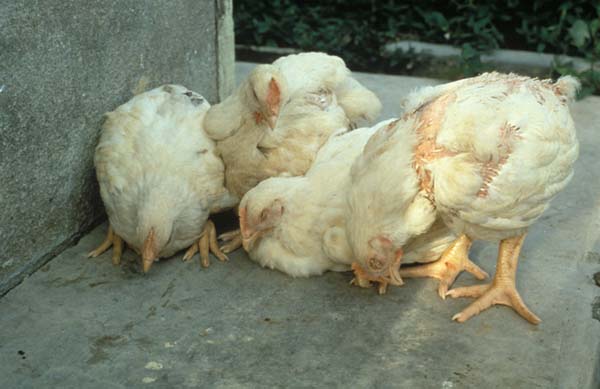
Researchers from the Central Luzon State University (CLSU) in the Philippines had created an affordable technology, which will provide easier detection of Newcastle disease in poultry flocks, according to the country’s Bureau of Agricultural Research (BAR).
The CLSU College of Veterinary Science and Medicine research team, which is led by Dr. Clarissa Yvonne Domingo, successfully developed a dry format RT-LAMP or reverse transcription-loop-medicated isothermal amplification, an alternative nucleic-based (NAB) assay for detecting NDV. It was created following NDV outbreaks in poultry farms in 2016.
Dr. Domingo explained that early detection and subsequent actions to quickly contain an NDV spread are key factors in eradicating the disease. The dry formart of the RT-LAMP, she pointed out, eliminates the requirement for storing the tubes under freezing conditions, given that they can now be kept at room temperature.
“This feature also removes the fear of reagent degradation and assures that the diagnosis of Newcastle disease in local poultry farms in endemic areas would be faster thus, making it more convenient,” BAR elaborated, adding that the assay’s high sensitivity means that it has to be handled carefully without getting contaminated in order to preserve “full efficiency of the dry RT-LAMP amplification.”
It also described the test assay as “rapid, simple, sensitive and very convenient” and can be used by veterinary poultry practitioners or animal diagnosticians who operate in laboratories “with simple resources.”
“It can be used for early NDV detection – thus, is a powerful and promising tool for monitoring, surveillance and control of the disease,” BAR said.
Dr. Domingo highlighted the significant worry about NDV which has cost the lives of thousands of chickens. “The symptoms in chicken generally include gastrointestinal, respiratory and neurological signs and may vary from subclinical to sudden death with 100% mortality,” she said.
Mortality is especially more prevalent among unvaccinated flocks although NDV can still cause fatal harm to vaccinated birds.
“Most of infected chickens die from NDV but can also spread the virus since the transmission is (through direct contact) with (both) infectious body excretions and airborne,” Dr. Domingo added.
CLSU’s technology was funded by BAR through a research grant that the former won in a local research symposium.
Source: http://www.efeedlink.com/contents/12-11-2017/231584eb-08cc-435d-9527-8ac4f8014501-a002.html
